Last Monday, I took a historic trip to Havana. Not only was I on board the first commercial flight to Havana from New York in over 50 years, my trip also coincidently happened to fall during the mourning period of Fidel Castro. I knew this visit would be one for the books, and I was naturally excited, but also a bit uncertain about what to expect during such a critical time for Cuba.
As a traveler, I innately had a desire to visit Cuba at some point, but I never thought it would happen with just 6 days notice and under such rare circumstances. The beauty of life is that sometimes you just need to “just go” when opportunity knocks.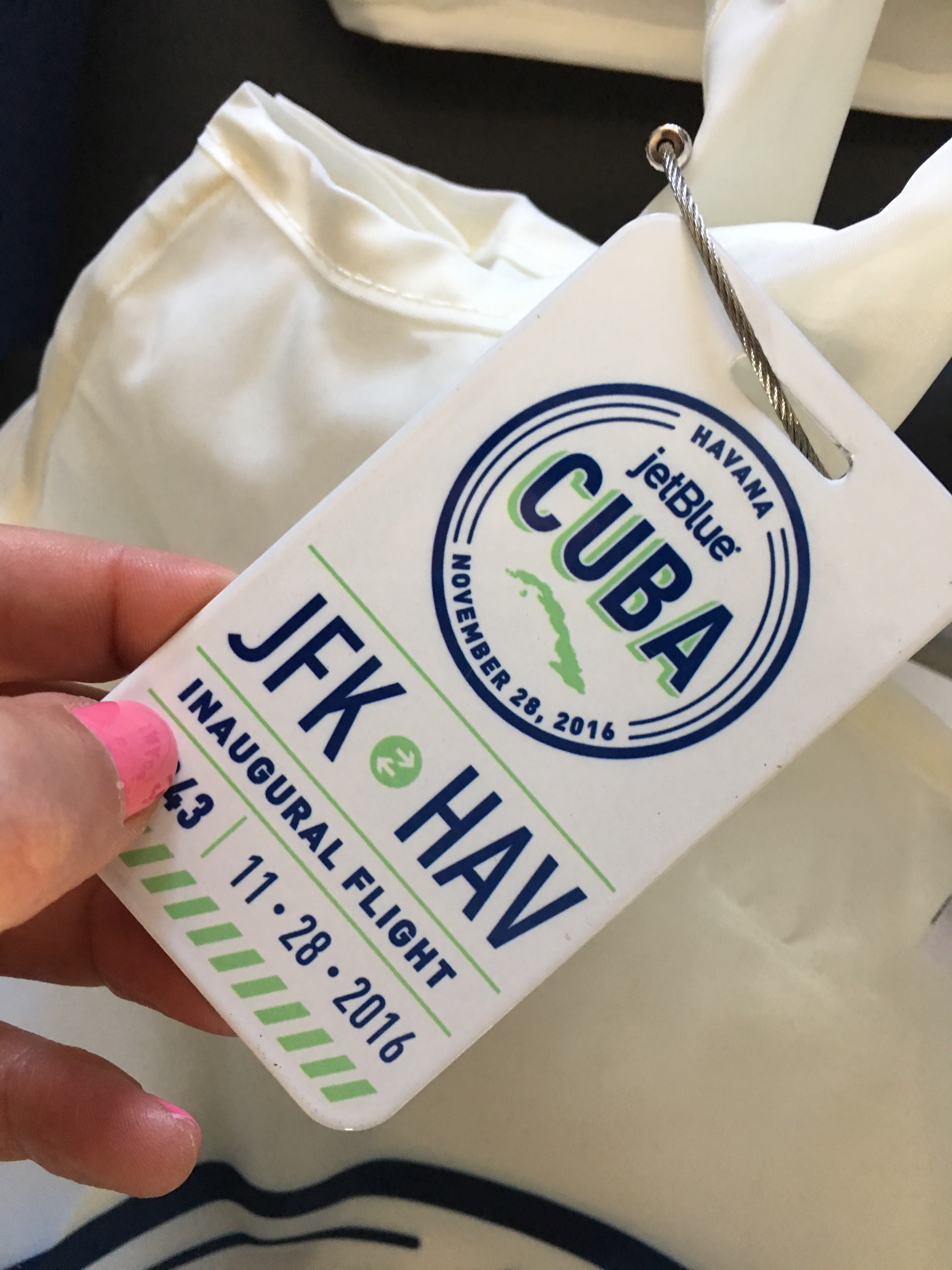
It’s Great to Get Out of Your Comfort Zone
We’ve all seen inspirational quotes that remind us that the “magic” happens when we step out of our comfort zone— but what does that really mean?
Simply put, it’s easy to get used to a certain way and routine of life. The benefits from stepping outside of your comfort zone can linger, and like many other travelers, I’m attracted to experiences that challenge me, give me a rush, and force me to grow.
I went to Cuba without much of a plan to say the least. Less than a week before departure, all I had was a ticket in my name and a passport craving fresh ink. I’ve always classified myself as an open-minded and spontaneous traveler, but the perks of traveling with miles & points is having access to luxury travel experiences at my fingertips that I wouldn’t be able to afford otherwise (first class flights and top-tier hotel amenities)… and let’s just say it’s easy to get “spoiled”.
Comfort and accommodations aside, when I first announced my sudden plans to go to Havana, the reaction from others was not very favorable. “Why would you go to Cuba? It’s so disconnected and dangerous!”, and “You should probably think twice about visiting Cuba now that Fidel Castro has passed” were phrases I heard on repeat.
Ok, I’m not a complete rebel to society- I did take the concerns from others seriously, but the unknown factor seemed intriguing to me. After all, I was visiting on a Monday and I’d be home on a Wednesday. Occupying myself in a new city for 48 hours wouldn’t be too hard, would it?
The Best Things Happen By Accident
Once I landed in Havana, I waited in the immigrations line for eternity for no less than 90 minutes. There I am alone, bored, and impatient. I couldn’t even turn to the comfort of aimlessly browsing Instagram because I was completely disconnected from the world.
Finally I decided to do something that has become so foreign in modern society- strike up conversation with the people standing behind me. We joked about how we were in the “slow line” until eventually it reached a point where I stated that I was traveling alone and I really had no idea what I’d do with myself once I got my entry stamp.
They told me were also staying in a casa particular, but in the Vedado neighborhood, which was on the way to mine. We agreed to share a taxi. During the ride, we all agreed that we seemed “normal”, and it wasn’t long before I had dinner plans with them. They told me their friend was in town not too long ago, and that we could have a home-cooked Cuban meal with lobster tails for 10 CUC per person. That sounded great to me, and I wrote down the address to “Casa Aleido“, which appeared to be walking-distance from where I was staying. We set to meet again at 5 pm.
Taking in all of the sights and sounds of Old Havana, I walked to this address, which looked like “rough” part of town (before knowing that most of Old Havana looks this way). Like a lost puppy dog, I survived ca tcalls and all kinds of hustlers. Finally, I arrive. I wait. I wait some more. Now the sun is setting a bit and my new friends haven’t arrived yet.
I finally decide to go upstairs of the somewhat-sketchy looking building I was pacing back and forth in front of for the past 20 minutes or so. All of the sudden, I hear in broken-English, Â “You must be Angelina! We were waiting for you. Your friends are running late, but will be here in about 45 minutes. Here, have some cafe con leche.”
Whew! I felt a wave of relief, and from that point forward, I just knew I was going to have an exciting trip.
Local Experiences Are Best
Dinner was awesome! I felt so welcome in Aleido’s casa, and we spent hours laughing the night away with local Cuban people.
While I was researching my trip, I quickly came to terms that staying in a hotel was probably not the best bet for me from a financial and authentic-experience standpoint. Cuba is cheap, but hotels are pricey. For example, a room at the popular Melia Cohiba (which offers “free” wifi) was pricing out at over $350 per night! I wanted to keep my expenses under $100 a day, including lodging.
If you want to truly experience Cuba on a people-to-people exchange, there is no easier way of doing so to staying a casa particular (the Cuban version of a bed & breakfast), and there were plenty of options available on Airbnb at very reasonable prices. I chose a casa particular with good ratings that had multiple rooms, so that I could increase my odds of meeting other travelers.
I remembered that had some Airbnb credits begging for attention, so settled on a private room and bathroom in a casa particular for $33 a night in Old Havana. The room was quaint, clean, and simple in a good location.
I later learned that my new friends rented a GORGEOUS 3-bedroom home called “Villa Diego” for $80 a night in Vedado neighborhood. Even though my room was perfectly fine, if a future visit is in the cards for me, I would definitely choose to stay where they were. The area felt safer, quieter, more residential, and “homey”. Their host, Monica, was outstanding, and I joined them for an outdoor breakfast each morning.
Havana in general is a safe and walkable city. Walking from Central Havana to Old Havana is very easy, and you can enjoy a very scenic journey along the malecon (coastal road), which stretches for about 5 miles. We spent the majority of our sight-seeing on foot.
Be Prepared to Get Ripped Off
Let’s talk about money. It’s important to emphasize that American credit cards will not work anywhere in Cuba, so make sure you come with enough cash for the duration of your visit. Be prepared to not only wait in an excruciating long immigrations line, but also a line of at least 1 hour to exchange money.
Since there are such heavy penalties (10% + a 3-5% exchange fee commission) on the exchange of US Dollars to Cuban Convertible Pesos (CUC), I highly recommend you bring Euro, British pounds, or Canadian dollars ahead of time to exchange. Also only paper money can be exchanged (so leave those 2 Euro coins behind).
Keep in mind that there are two Cuban currencies—the Cuban Convertible Peso (CUC), which is the high-value currency most used by tourists, and the Cuban Peso (CUP), which is the local currency used away from tourist areas. The exchange between the Cuban Covertible Peso (CUC) and the U.S. dollar is 1:1, and 1 CUC is worth 24 CUP.
I can’t tell you how confusing it is knowing there are two currencies in place, and I can’t stress enough how important it is to carefully look at any change you’re given. Paying in CUC and getting change CUP is a common tourist scam.
I hate to be so negative, but everyone is looking to make a buck in Cuba, so be prepared to get hustled and ripped off. The average monthly income for a local is less than $40 a month, and it’s a place where taxi drivers easily make more money than some of the country’s most prestigious doctors. Considering the country’s devastating conditions, people will try to squeeze as much as they can from tourists; sadly, it’s become a way of survival.
During my 48 hours in town, I’ve never had so many people try to rip me off at every given opportunity. I’ve encountered everything from the popular “baby formula” scam, a pedicab driver that tried to charge us 3x the amount quoted by the “dispatcher” (the ride ended in a nasty argument), and I was even surprised that a door-man I genuinely thought I’d befriended at a nearby hotel was even trying to rip me off when I asked him to call a taxi. Of course, you have to haggle a bit and be willing to walk away if needed.
Speaking of taxi fares, a fare from the airport to Old Havana or Central Havana should cost between 25-30 CUC, and that’s not “per person”. For rides between town, drivers will always quote you at 10 CUC, but the correct price should be no more than 3 CUC. Simply call them out on their prices and they will back down. Speak in Spanish as well if you can. You don’t have to tip on pre-negotiated taxi rates, and 10% is appropriate on metered taxis.
Go Now If You Can Before Everything Changes
Havana still remains very much in a time-warp (side note: there really are classic cars everywhere, and you can even rent one with a driver for a tour for ~40 CUC. The best ones are parked in front of Hotel Inglaterra in Old Havana), and it’s only a matter of time that it becomes more commercialized now that the country is opening itself up to the rest of the world. In fact, I recently learned that Google is making huge investments in Cuba and many cruise lines are stopping in Havana to bring  in more tourism.
Though tourism to Cuba for Americans still remains illegal, The US government currently allows US citizens to travel under 12 specific categories. Since many US airlines have started service to Cuba, it’s now easier than ever to get everything done at once.
For instance, you can buy a visa right at your departure gate for $50, and tickets purchased with JetBlue even include the required health-insurance needed.
As of now, here are the visits that qualify for US citizens:
- Family visits
- Official business of the U.S. government, foreign governments and certain intergovernmental organizations
- Journalistic activity
- Professional research and professional meetings
- Educational activities (ie. people-to-people tours)
- Religious activities
- Public performances, clinics, workshops, athletic and other competitions and exhibitions
- Support for the Cuban people
- Humanitarian projects
- Activities of private foundations or research or educational institutes
- Exportation, importation or transmission of information or information materials
- Certain authorized export transactions.
Being Disconnected Isn’t Always a Bad Thing
As far as the internet goes, Cuba is among the most poorly connected countries in the world, so plan your life accordingly. Wifi was only introduced a little more than a year and a half ago, but it’s still very restricted and hard to come by.
For the most part, you can only access wifi at hotels and public parks with the purchase of an internet card. Prices range from 2 CUC to as much as 6 CUC per hour, and it would always vary in price, depending on if the person selling it to you thinks they can squeeze a buck out of you or not.
I quickly came up with my own psychological “hack”: ask in Spanish and hand over 2 CUC with my “old” internet card in plain sight when purchasing new cards, so that they’d see that not I’m not new to town for them to rip me off. With internet so scarce, I decided to stay disconnected for the most part, only signing in for a for 10-15 min a time during the day (while drinking a mojito, of course).
You know you’ve come across a wifi “hotspot” when you see crowds of people huddled on a street corner like this, even in the wee-hours of the night:
In all seriousness though, cherish the time you are disconnected. It’s such a different experience to travel and take everything in without being a slave to technology and keeping up the outside world. It is a reminder to be present with the people that surround you.
Havana Wasn’t as Somber as The Media Portrayed it to be
Speaking of mojitos, we all know that the media sensationalizes everything. Before my visit, I was warned that tourists are fleeing Havana like crazy because it was a depressing, somber, ghost-town. I didn’t find that to be the case at all. All news sources indicated that there was a ban on alcohol and music for 9 days to prevent Cubans from “celebrating” during the mourning time.
Alcohol was available to tourists at hotels without a problem, and we were able to sip delicious mojitos with sunset views of the city for only 2.50 CUC a pop. The ban on music though was very real. It was odd not hearing a single sound of music anywhere in such a lively city. Even so, for the most part, the vibe in Havana felt normal, busy, and filled with happy people. I would have loved to have experienced a Cuban night club though.
Final Thoughts
Perhaps the most amazing part of my trip was the chance to visit Cuba during such a historic time on so many levels. On Tuesday, November 29, we attended the public memorial service for Fidel Castro at Plaza Revolucion. As an American outsider, it felt surreal being immersed into history.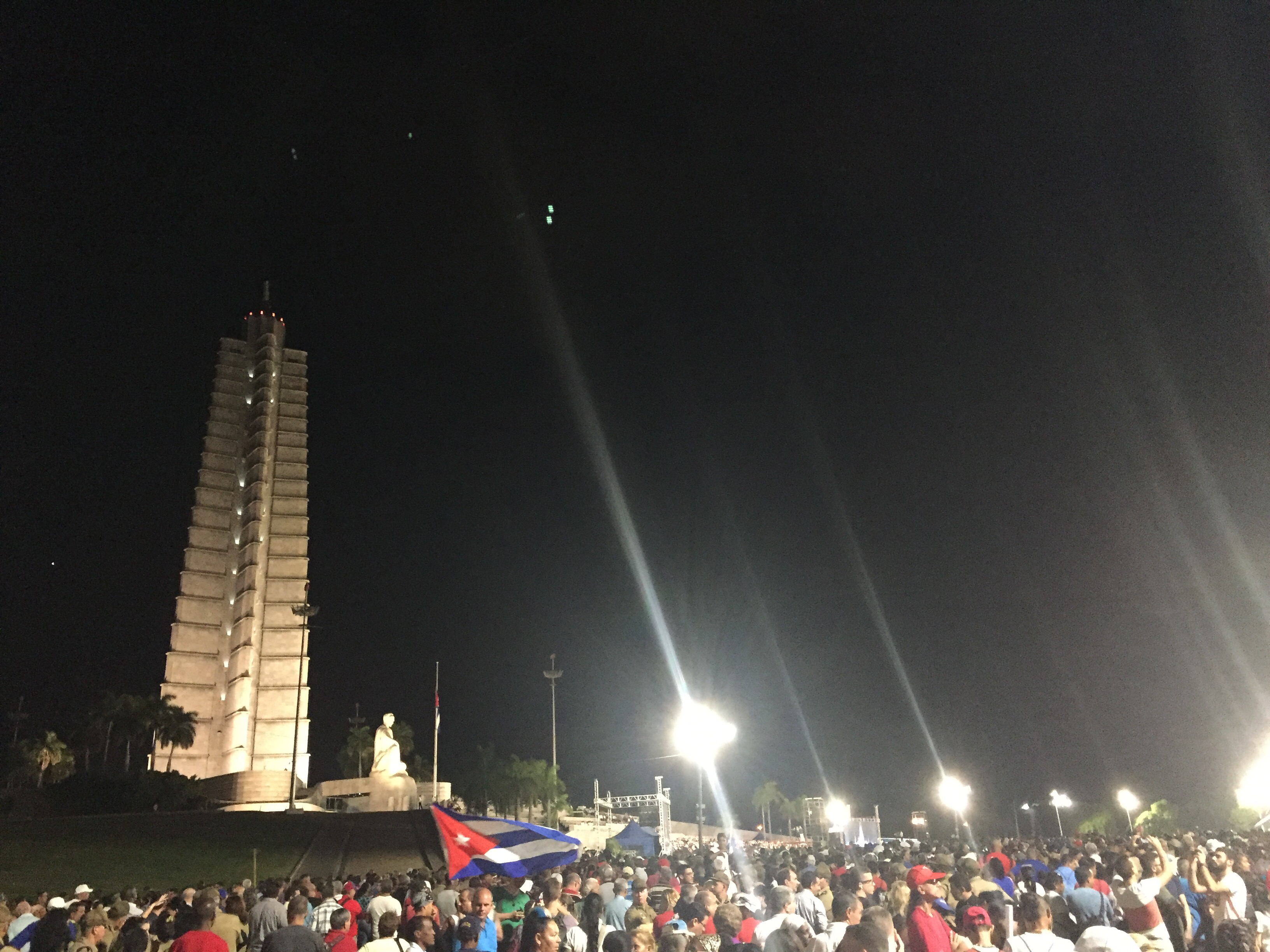
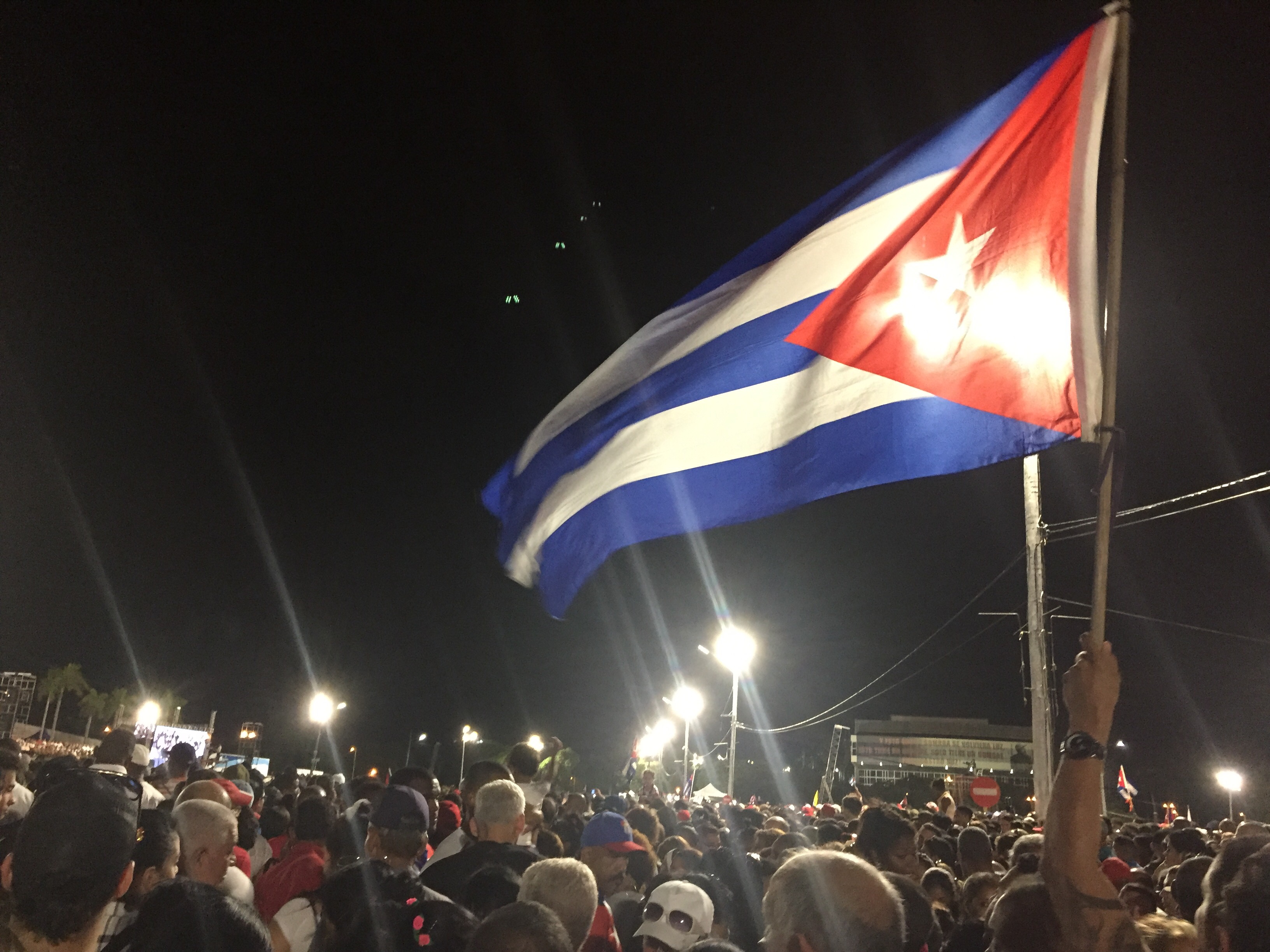
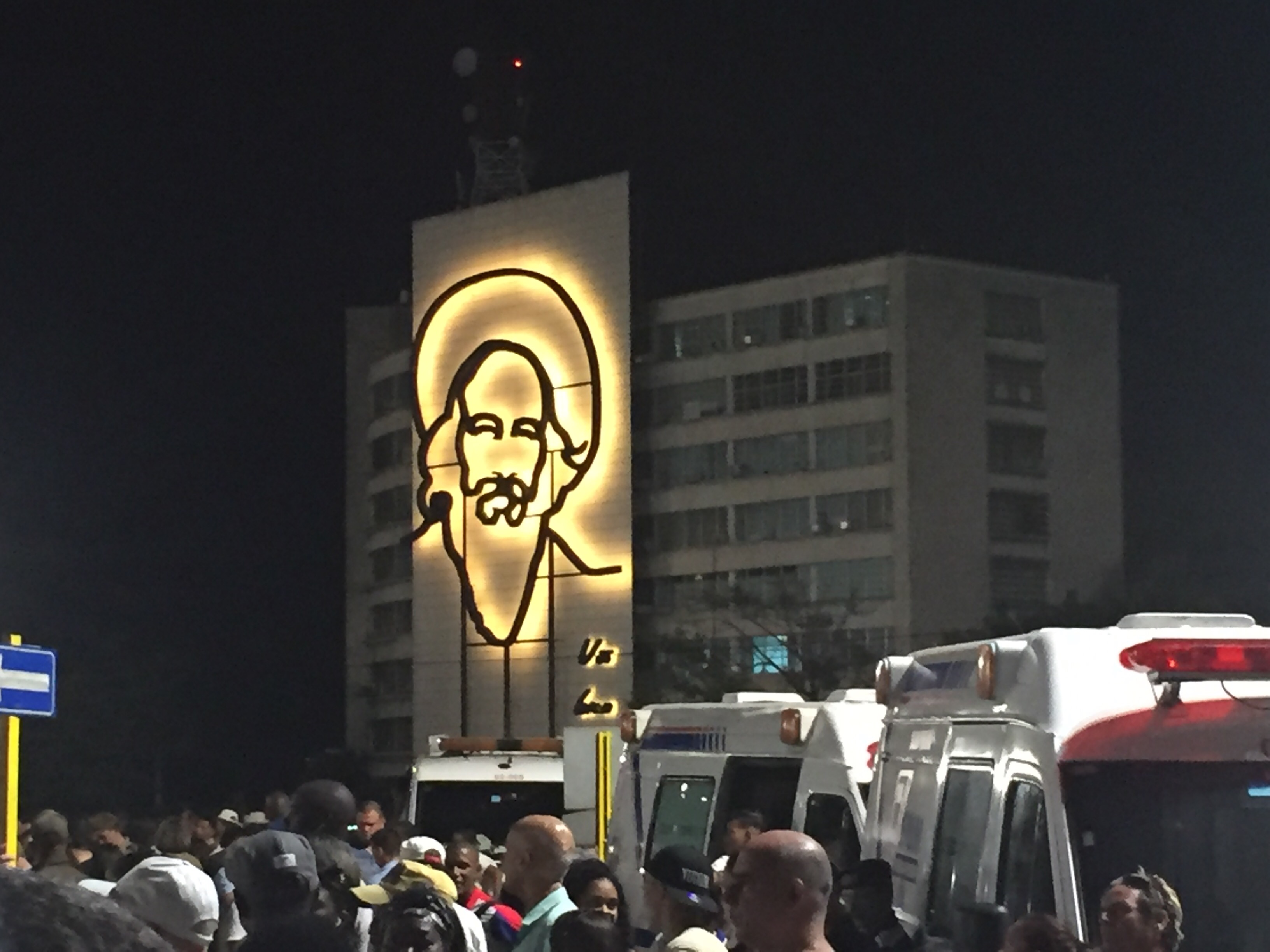
I’m also starting to remind myself how important it is to learn other languages, which is an invaluable skill in life and as a traveler in general. Being in Cuba, where it’s very hard to get by (but easy to get ripped off) without knowing Spanish, reminded me that it’s important to “brush up” on foreign language skills.
Just think about how much time we spend each day with numbing “noise pollution” – terrible music on the radio, soap operas on TV as “background noise”, wasting time watching cat videos on YouTube, etc. I want to be more aware about how I use my “free time” and focus on learning new languages.
I also am reminded to appreciate the many freedoms we have, especially the freedoms that Americans take for granted, such as the right to vote, and the freedom to travel. For instance, I learned that Cubans can only travel freely to 5 countries – Montenegro, Russia, Ecuador, China, and Venezuela, but none of those places are very accessible, and the average Cuban probably couldn’t afford it anyway.
Despite it all, I noticed that Cubans generally seemed happy, with a strong sense of family. It goes to show you that life isn’t measured by what you have, but how you perceive your circumstances.
Bottom line: traveling is a gift, and the best stories are found between the pages of a passport. Continue to explore, challenge yourself, and grow. Make lasting connections with the people around you.
Have you traveled to Cuba recently? What life lessons have you learned while traveling?
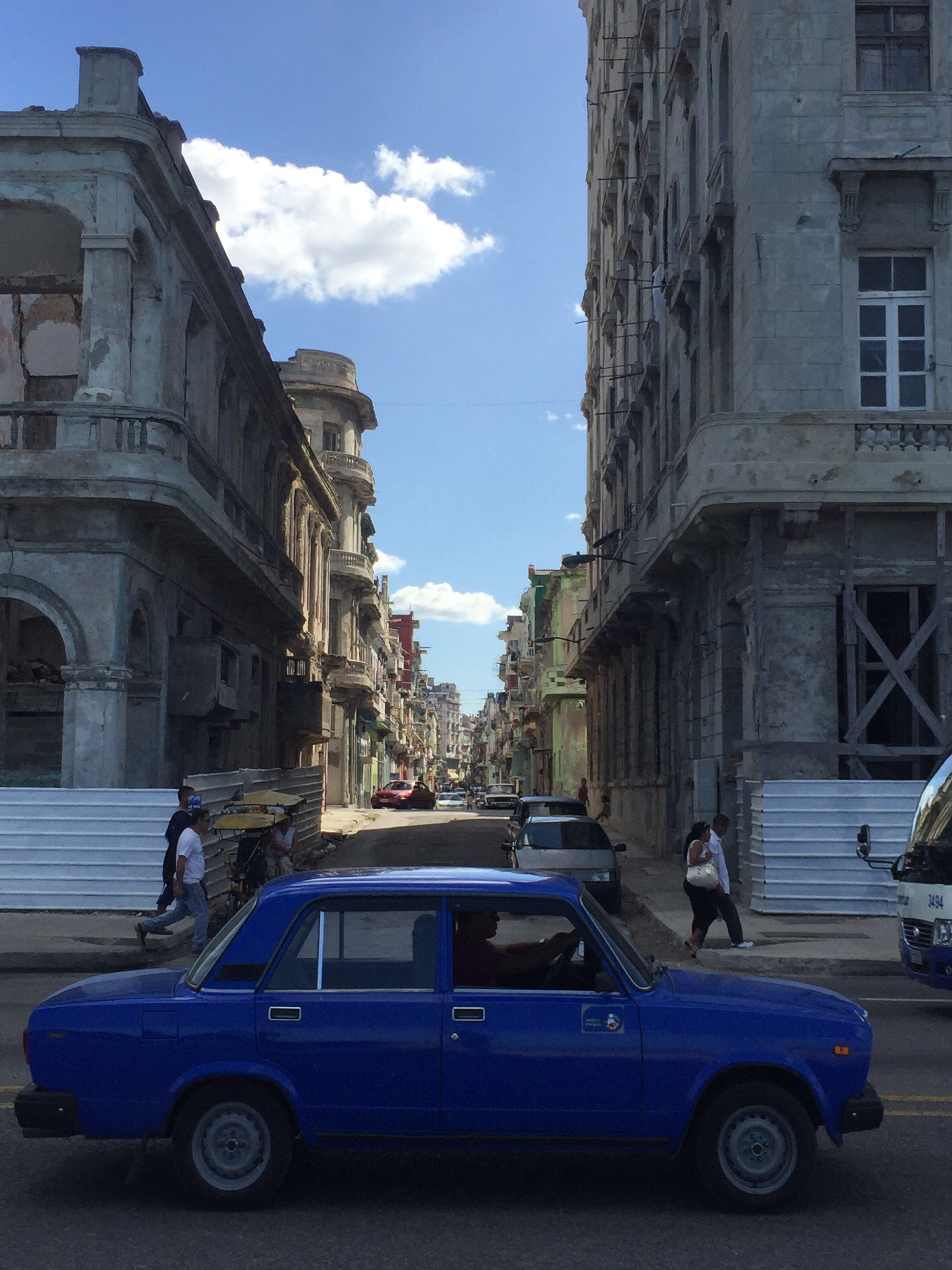
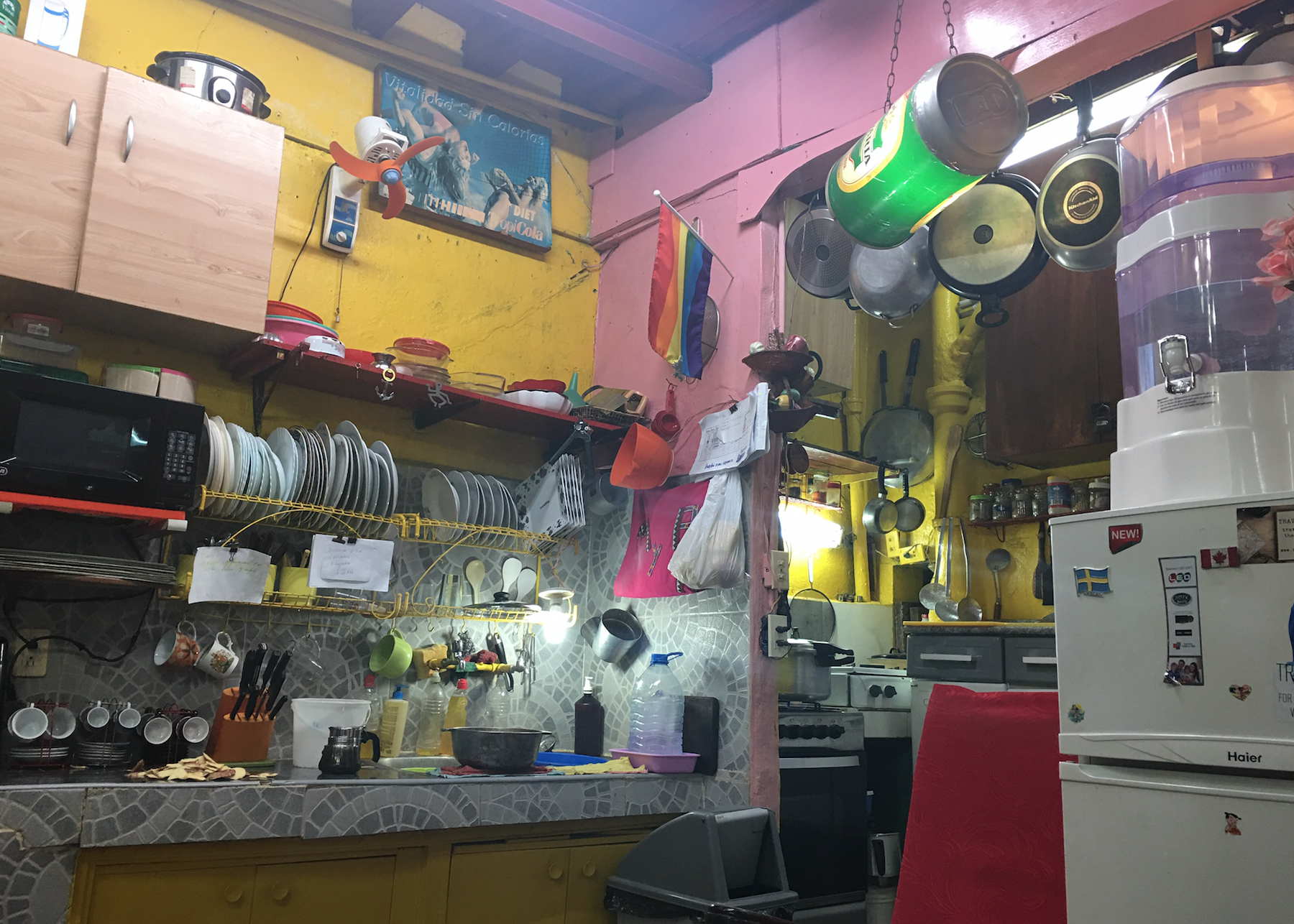
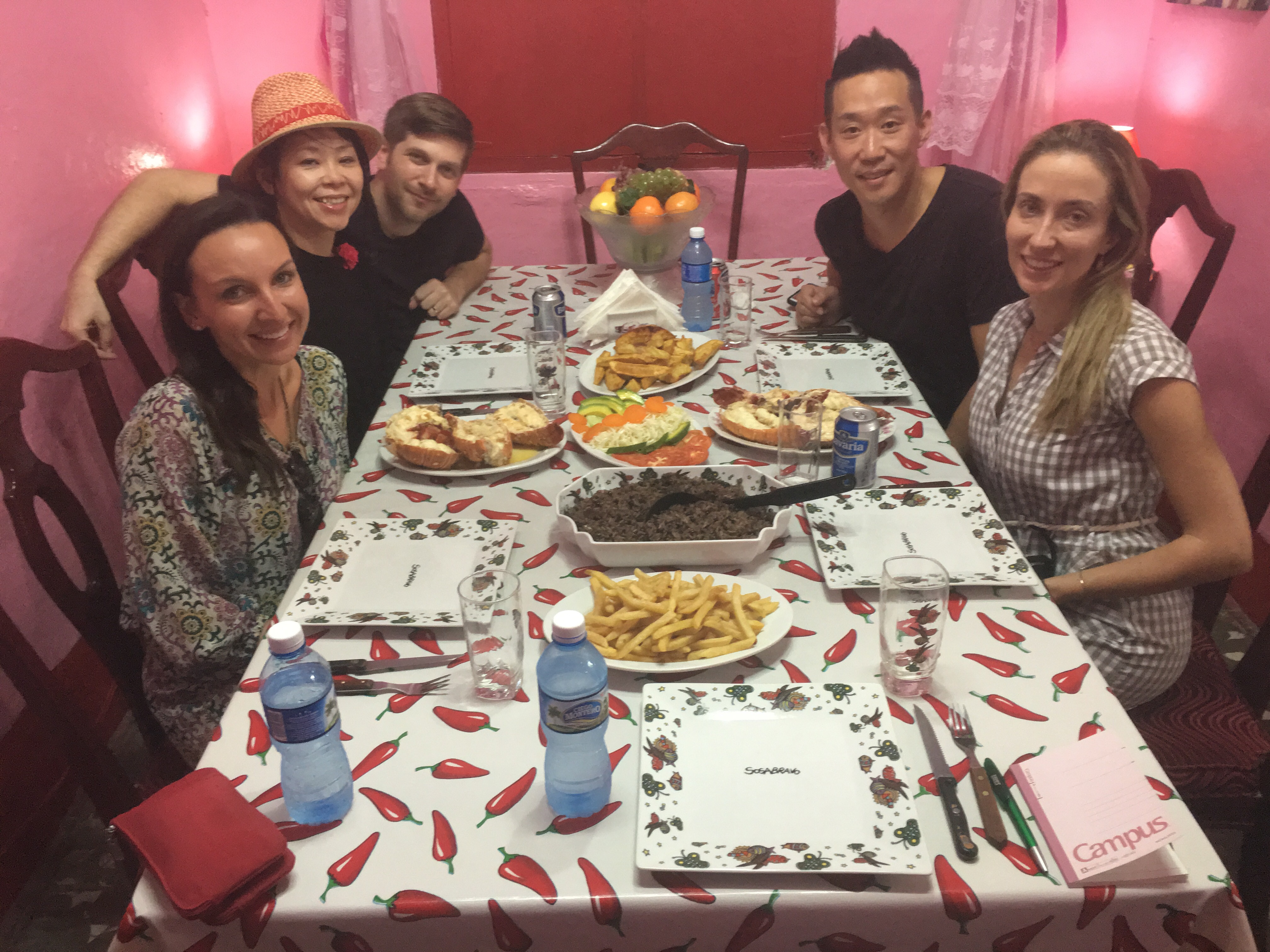
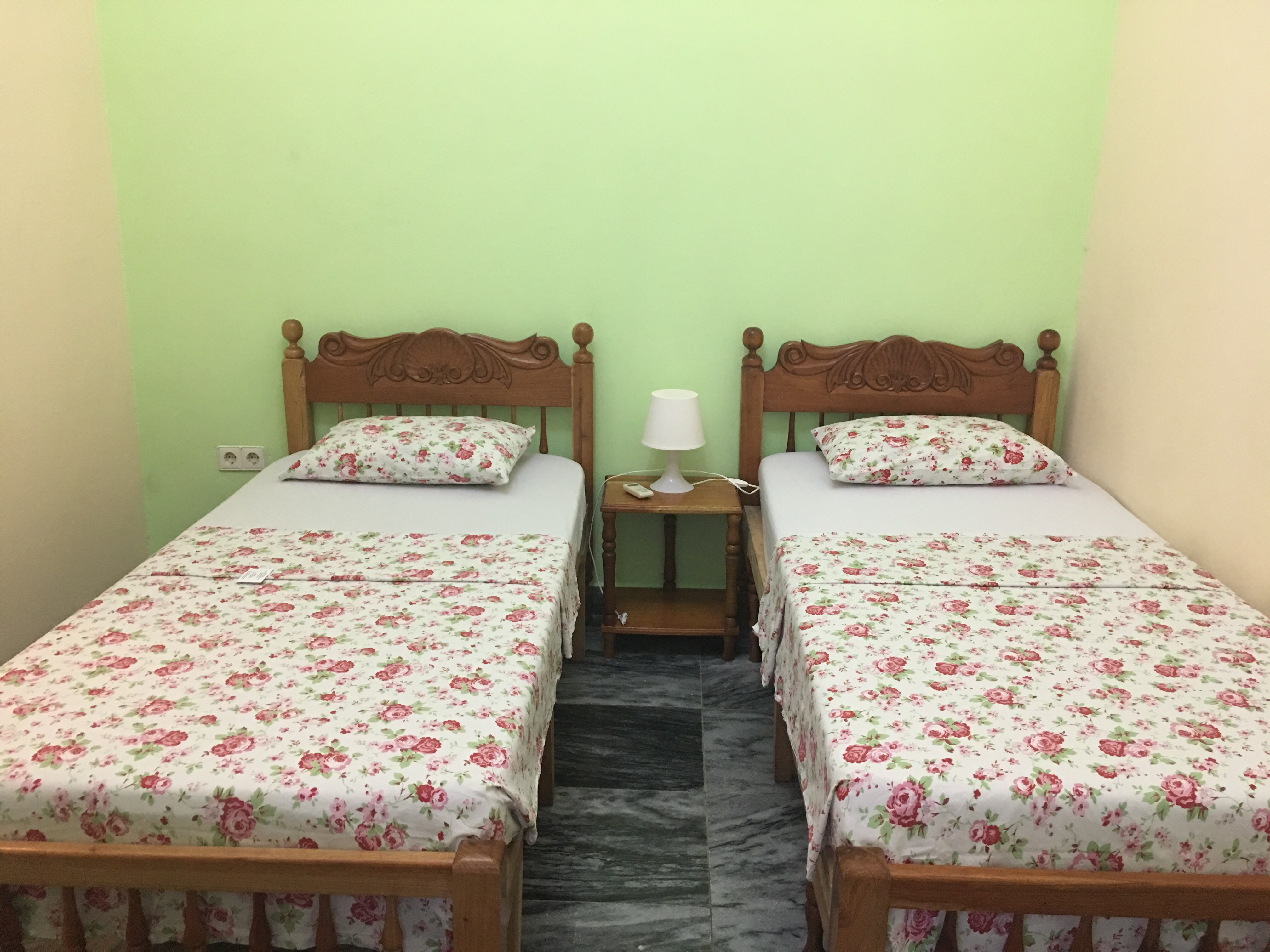

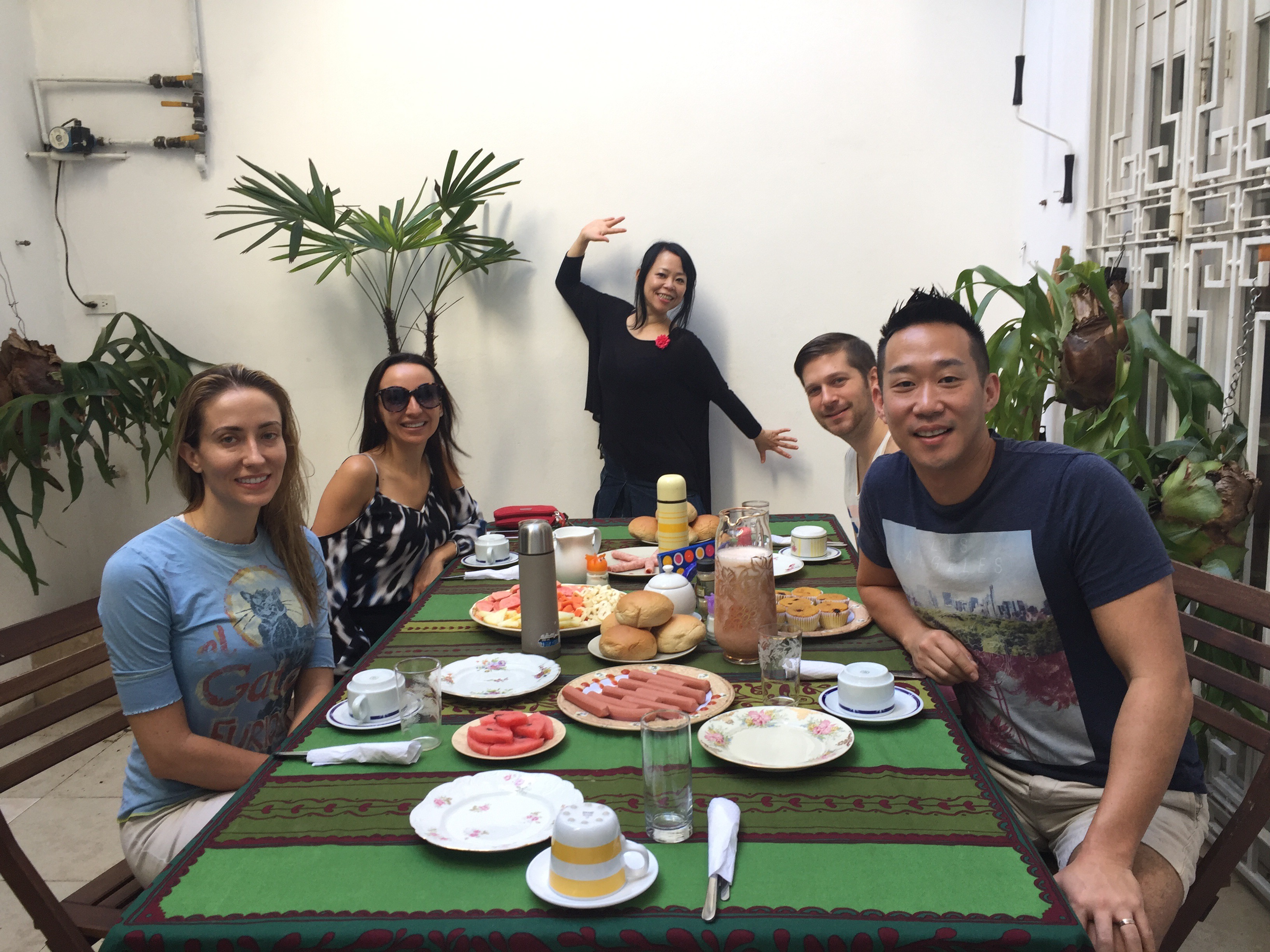
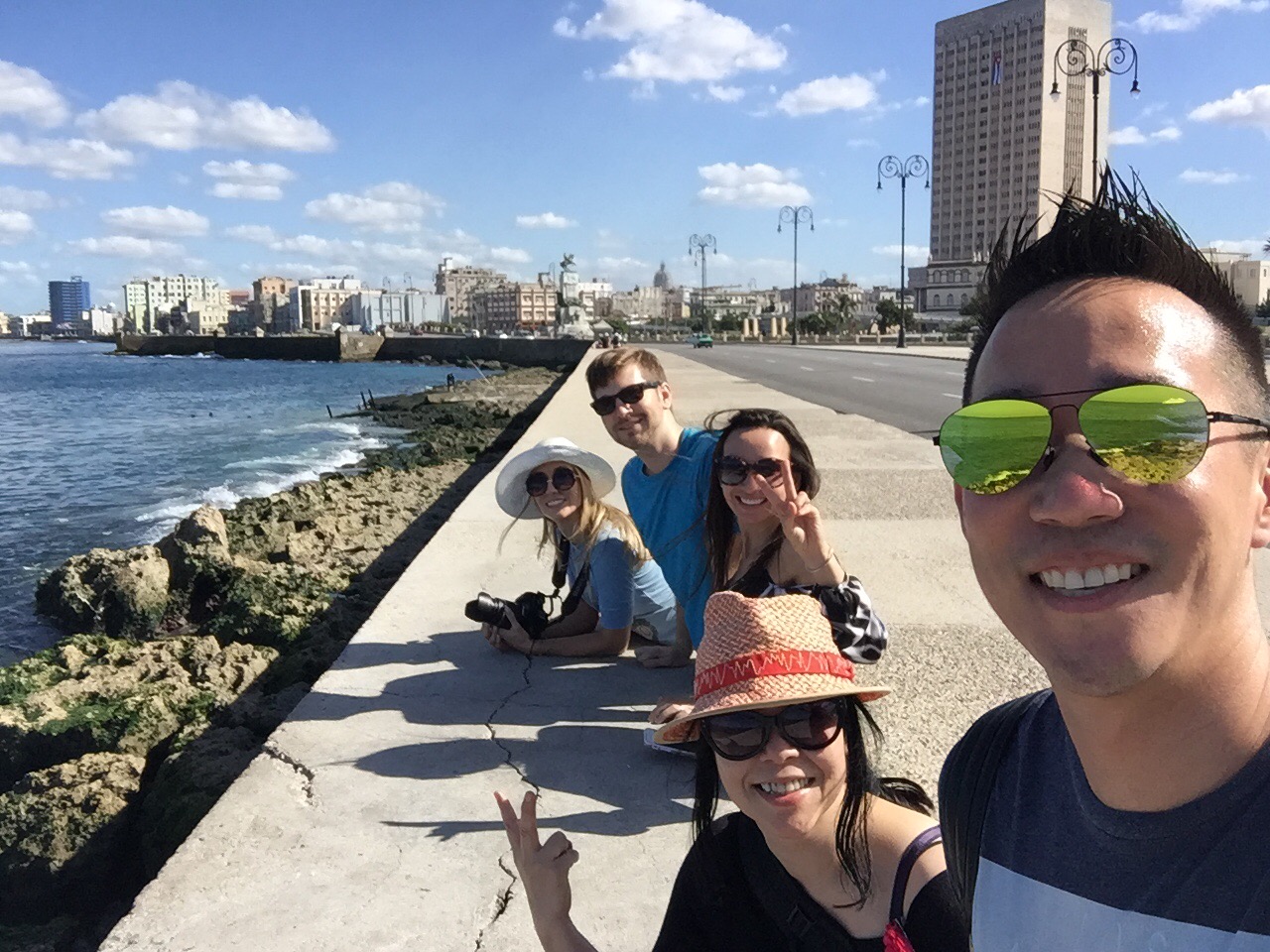
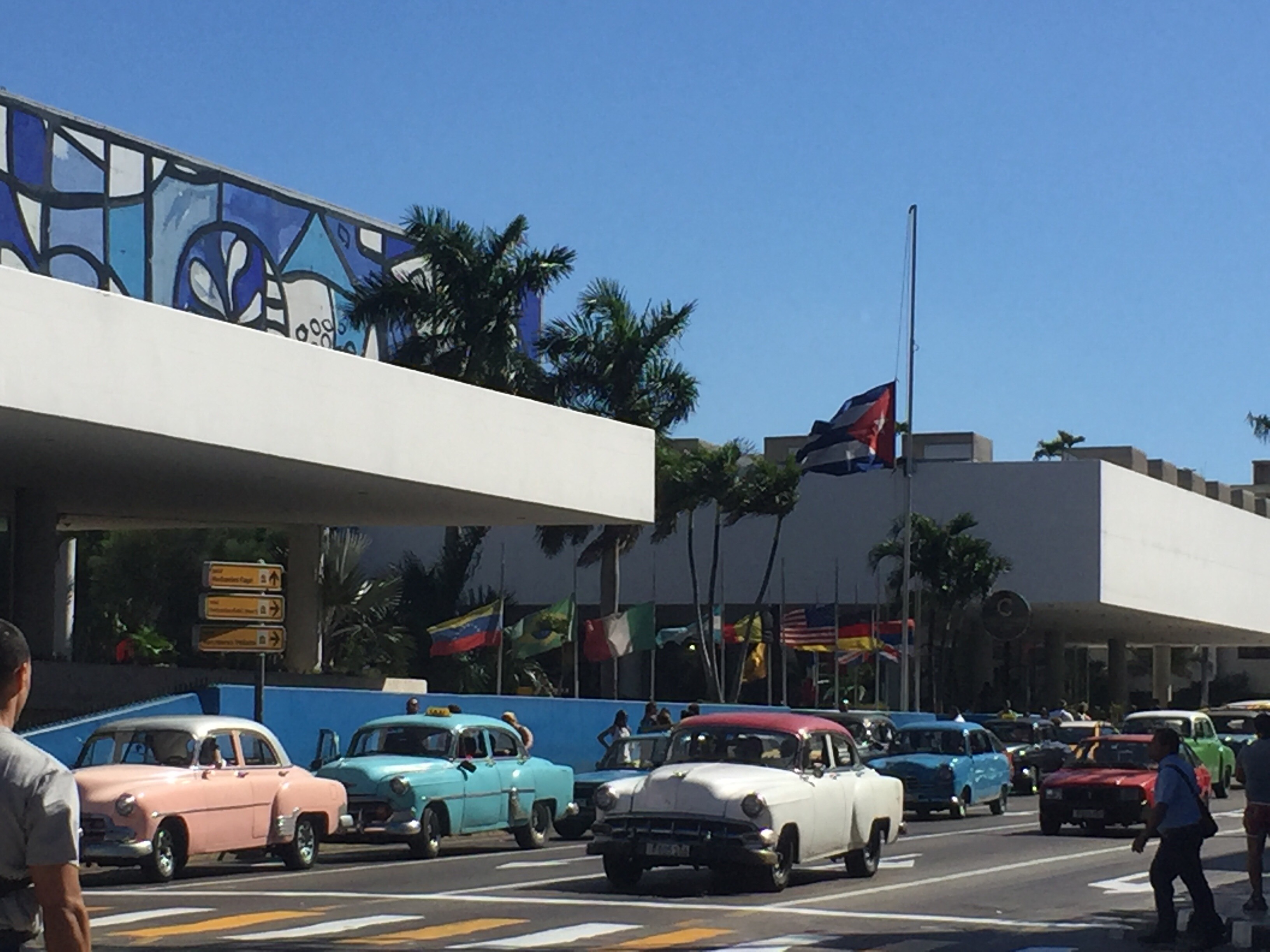
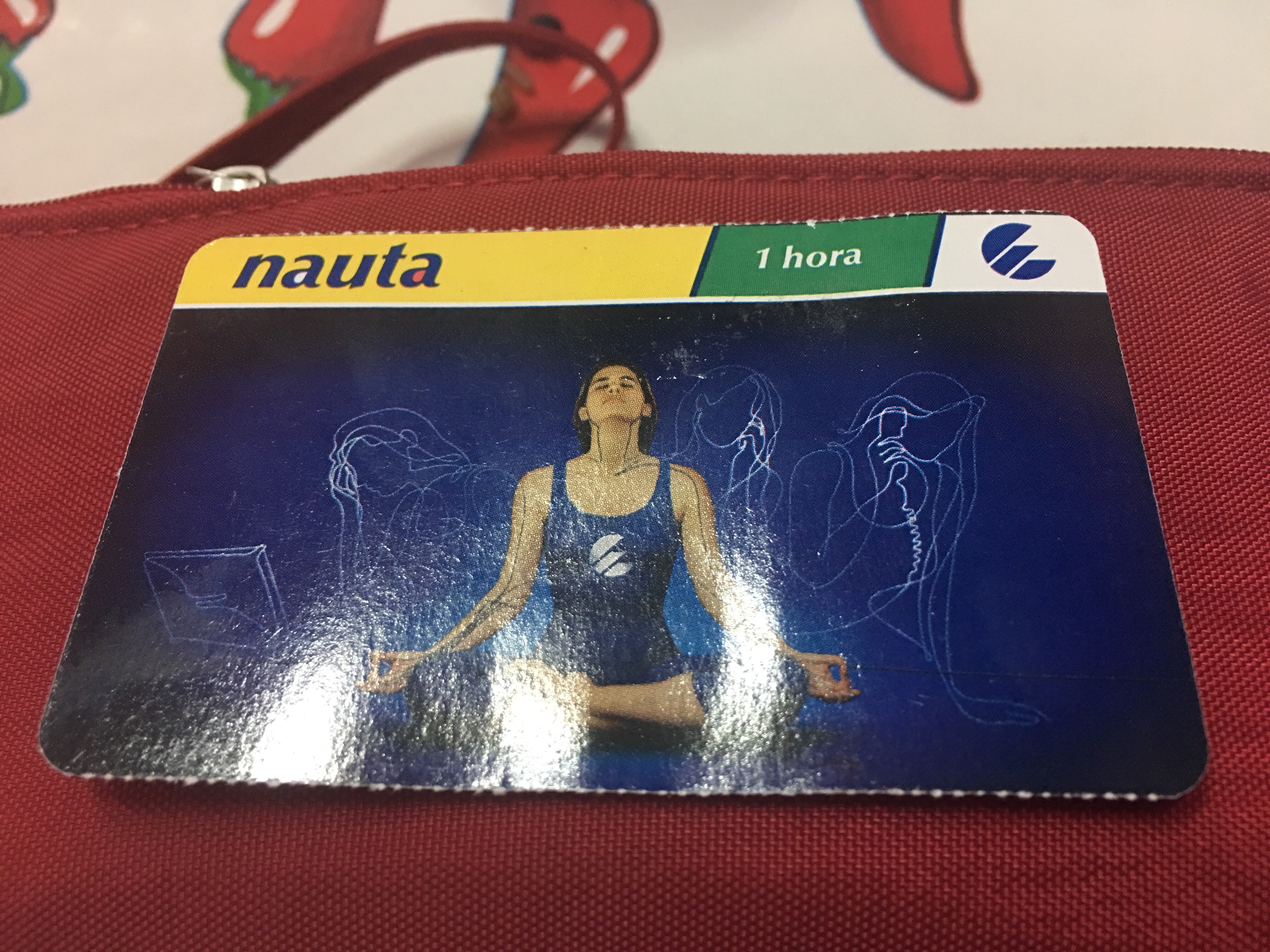
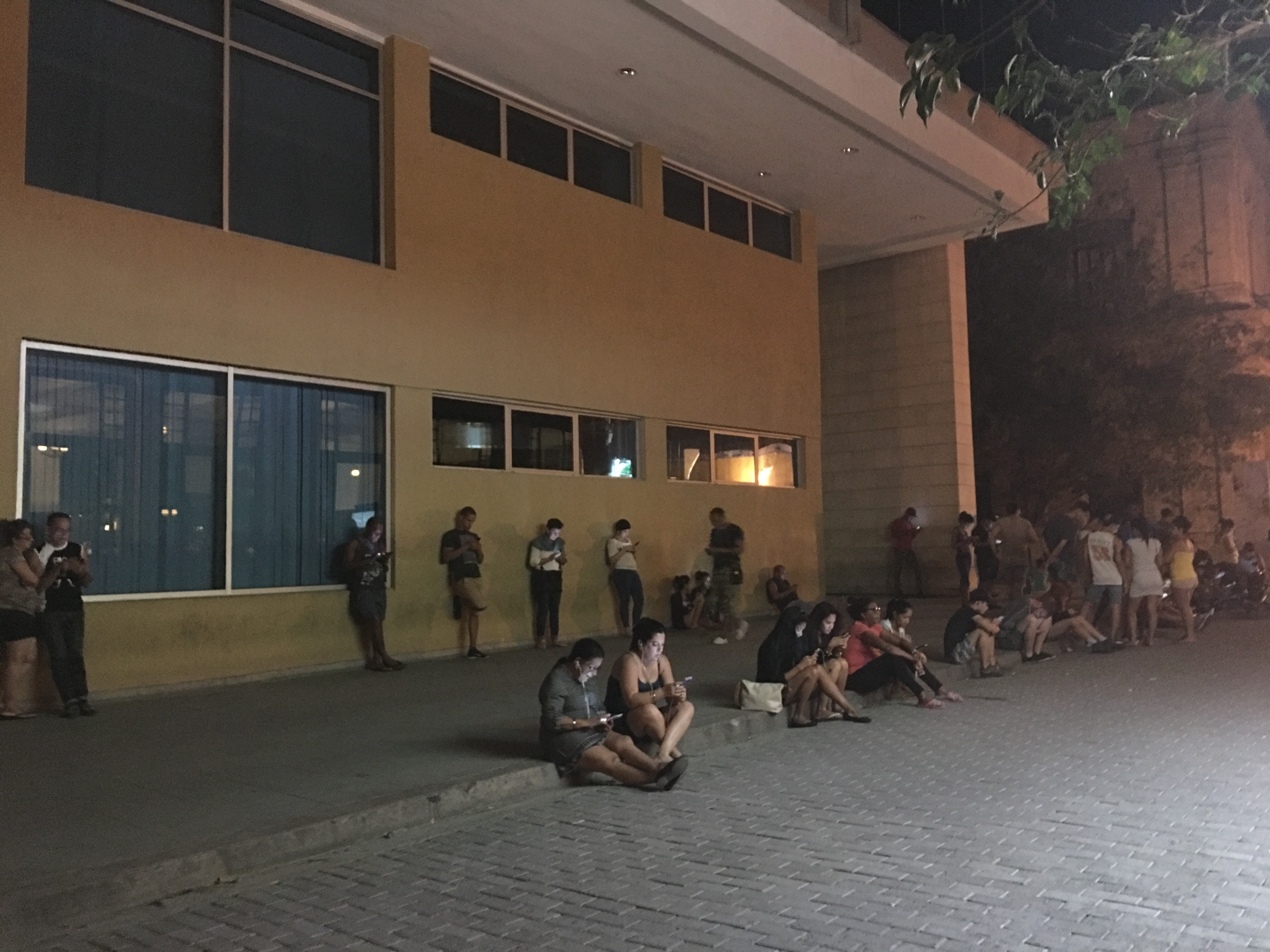
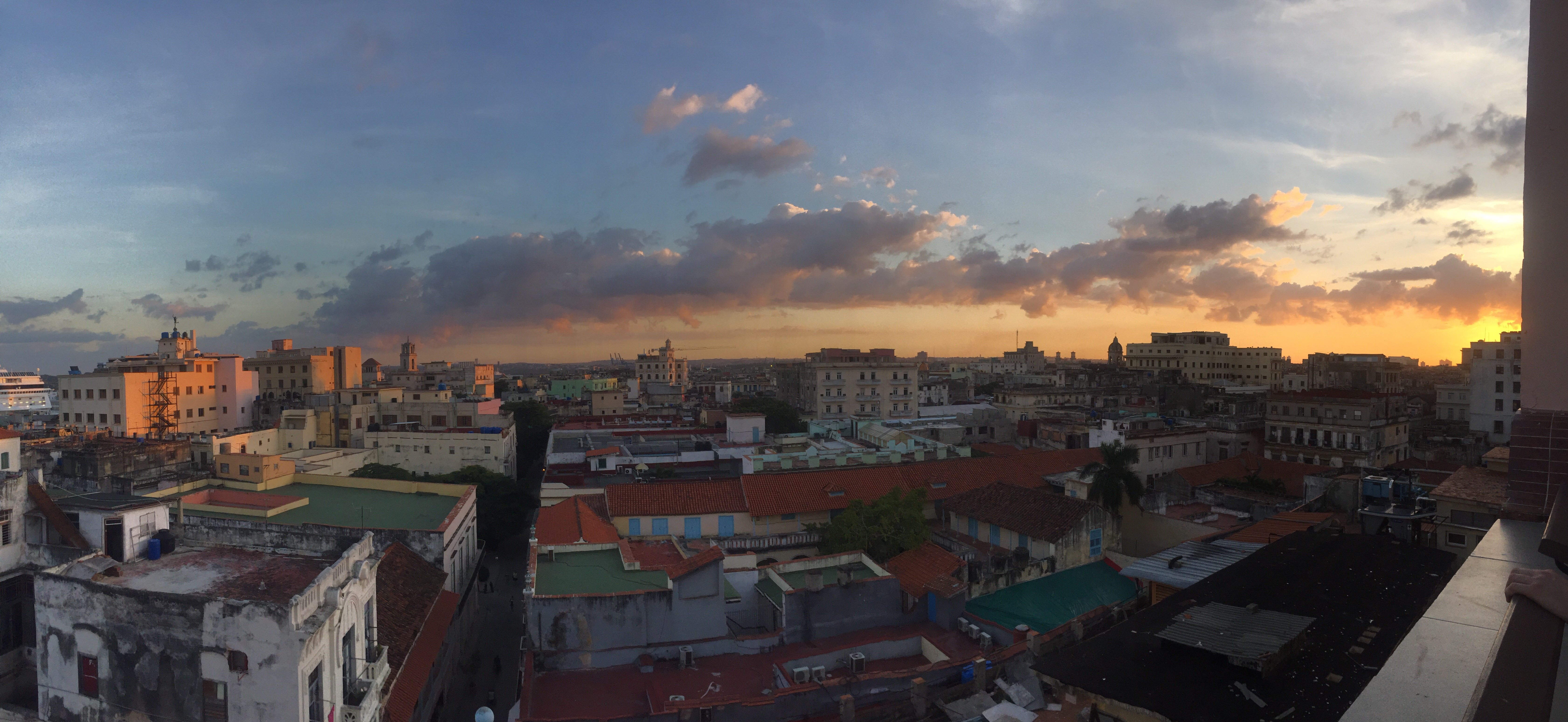
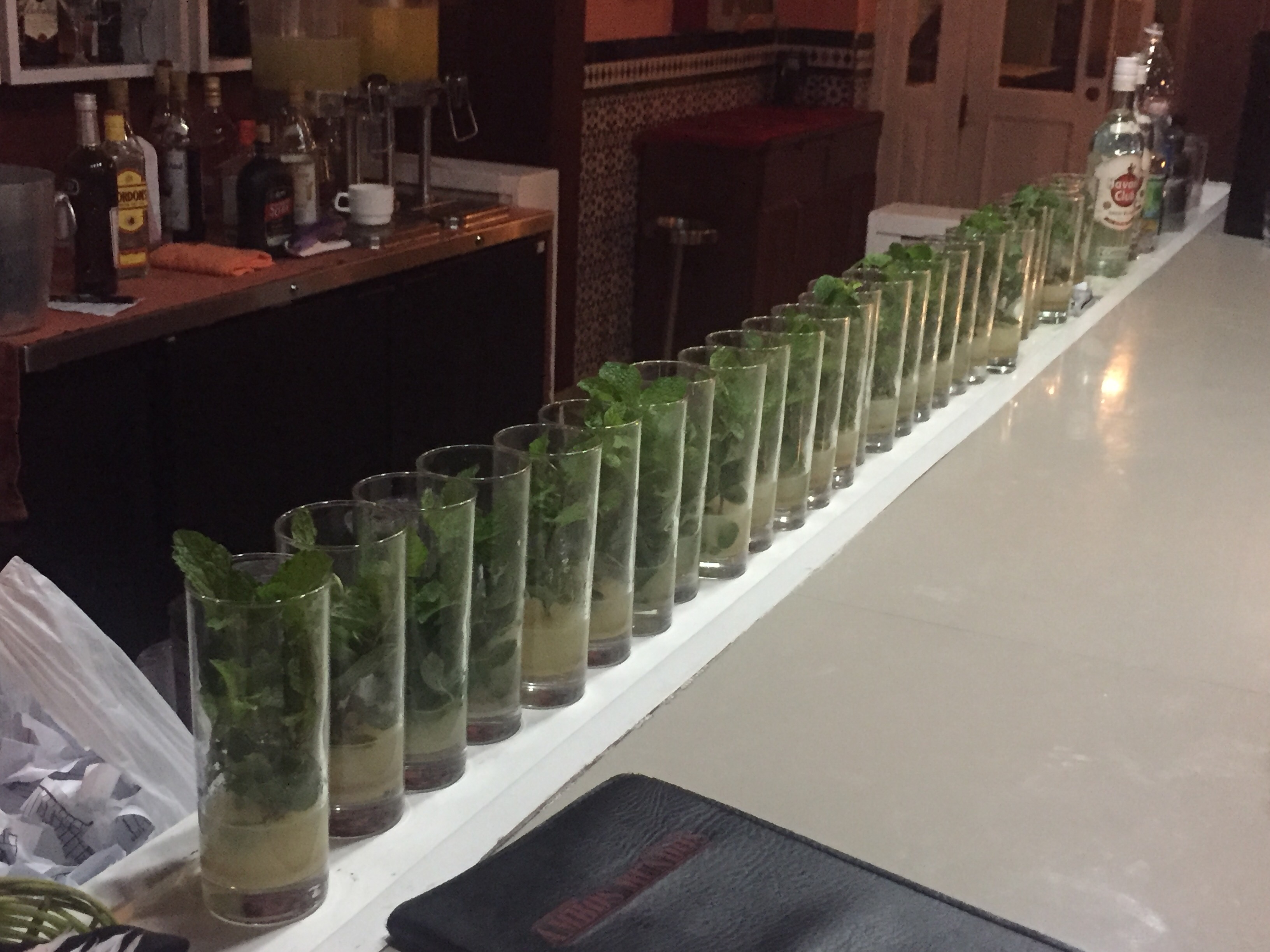

Very timely post. We leave for Cuba in a few weeks. Our trip takes us to the hinterland, Trinidad and Cienfuegos specifically.
I am confused about the cost fo visas since our airline (Silver Airways) is charging us $75. Maybe I should by my visa at a difference airline counter?
Sorry to hear that Havana is such a hustle hell. Maybe they aren’t used to tourists who wander away from the beach resorts.
Good summary of your impressions of Havana. We spent a couple of weeks there earlier this summer and enjoyed Cuba very much.
HeavenlyJane – you’ll find Trinidad and Cienfuegos interesting but don’t expect them to be off the beaten path. Europeans have been traveling to Cuba for years and many come in large groups. Not sure why your visa is more than $25 that’s what we paid in Mexico City. Have a fun trip!
Lovely post! I enjoy reading posts like these. They’re more real. It’s nice to read posts on hotels, lounges and planes, but they get boring after a while.
I can’t agree with you more on learning another language. I’m trying to decide what language to learn and would be most beneficial.
I also love the disconnected part. It makes you get out and immerse yourself in the local culture. Too often, me included, people are glued to their phones and don’t even realize what’s going on around them.
And maybe that wasn’t a wifi hotspot, but a Pokémon Go lure or gym
Odd, my last comment got cut off. I know it’s impossible for it to be a Pokémon lure or gym, but it would be cool if it was!
Fascinating post. Very insightful. Thanks for sharing.
I took my kids to Cuba last summer and we had a great time! We found it to be very safe. I would recommend people bring a bunch of their hotel shampoos and soaps. Many of the pan-handlers on the street will be very happy is you just give them a little shampoo and conditioner. They have zero variety there, so they are very excited to have something new and different. We spent a lot of time in Old Havana and even though the streets look scary, we never feared for our safety. Yes, prepare to be ripped off. Many items have a local price that is quoted and a tourist price. The tourist price is still reasonable for many of us, but there is often opportunity to haggle. Definitely get quotes from the taxi drivers before getting in. The Casa Particulars are definitely the way to go! We enjoyed it and look forward to going again in the future.
I just got back from 2 weeks there. I speak fluent Spanish and spent all my time with Cubans as I went alone.
I did NOT find the people to be generally happy. On the contrary, everyone seemed to be struggling hard to get by.
And I was considered an ATM by nearly everyone I met. The number one hobby in Cuba is trying to extract money from foreigners, and not even saying thank you when you’re kind enough to hand something out. No one (in my experience) is an actual friend. They’re just trying to find a way to get something from you.
Not that I blame them necessarily. They desperately want to have what we have.
But it was NOT a pleasant experience. I wish them well, but I certainly will never go back.